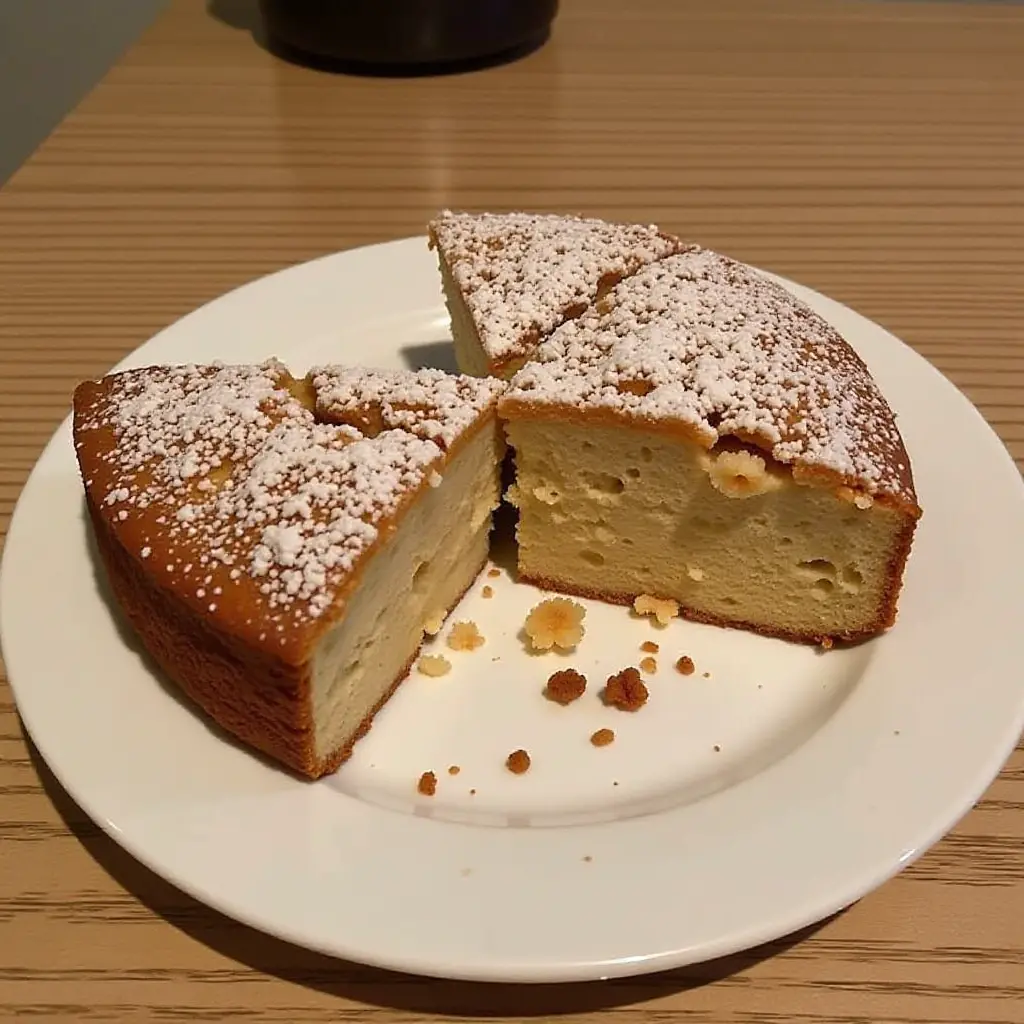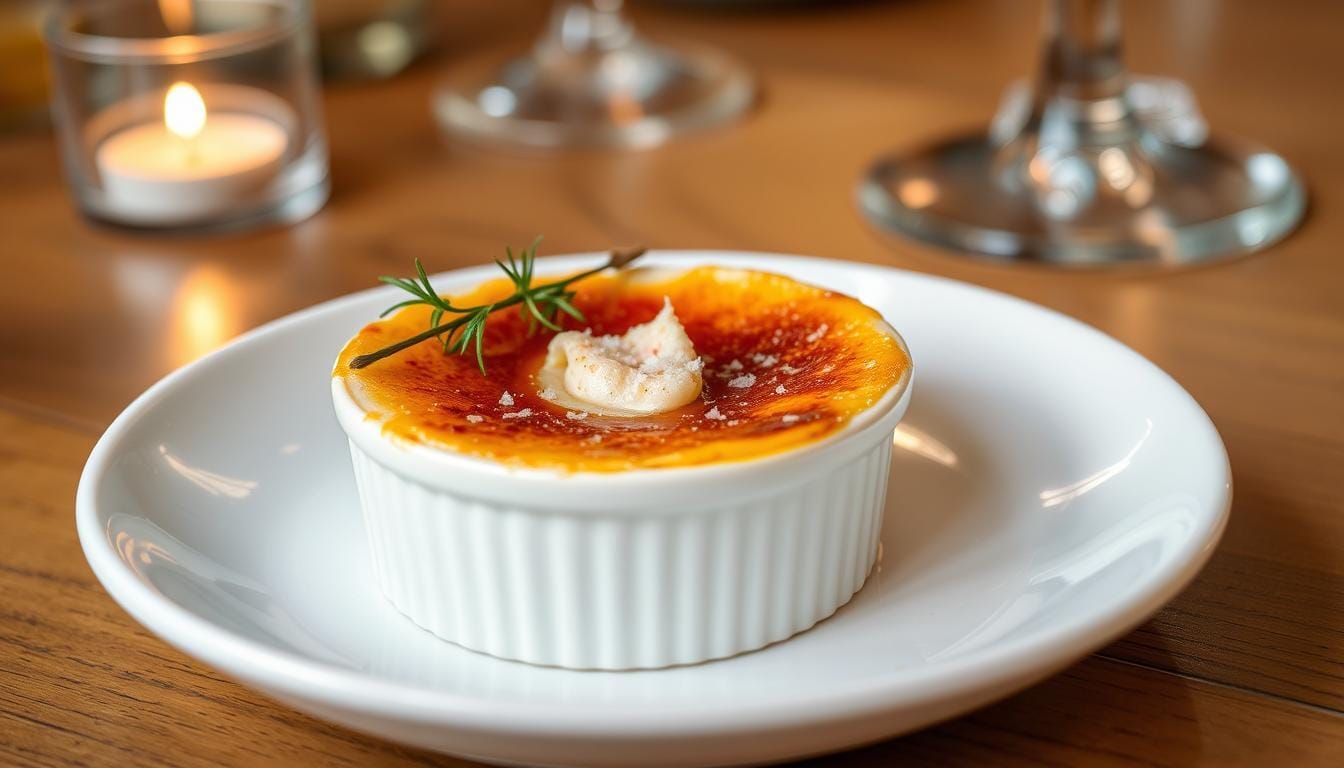The smell of freshly baked coffee cake is comforting and familiar. It brings back memories of cozy mornings and family gatherings. But what makes a coffee cake special and different from other treats? Let’s explore the secrets and history of this beloved pastry together.
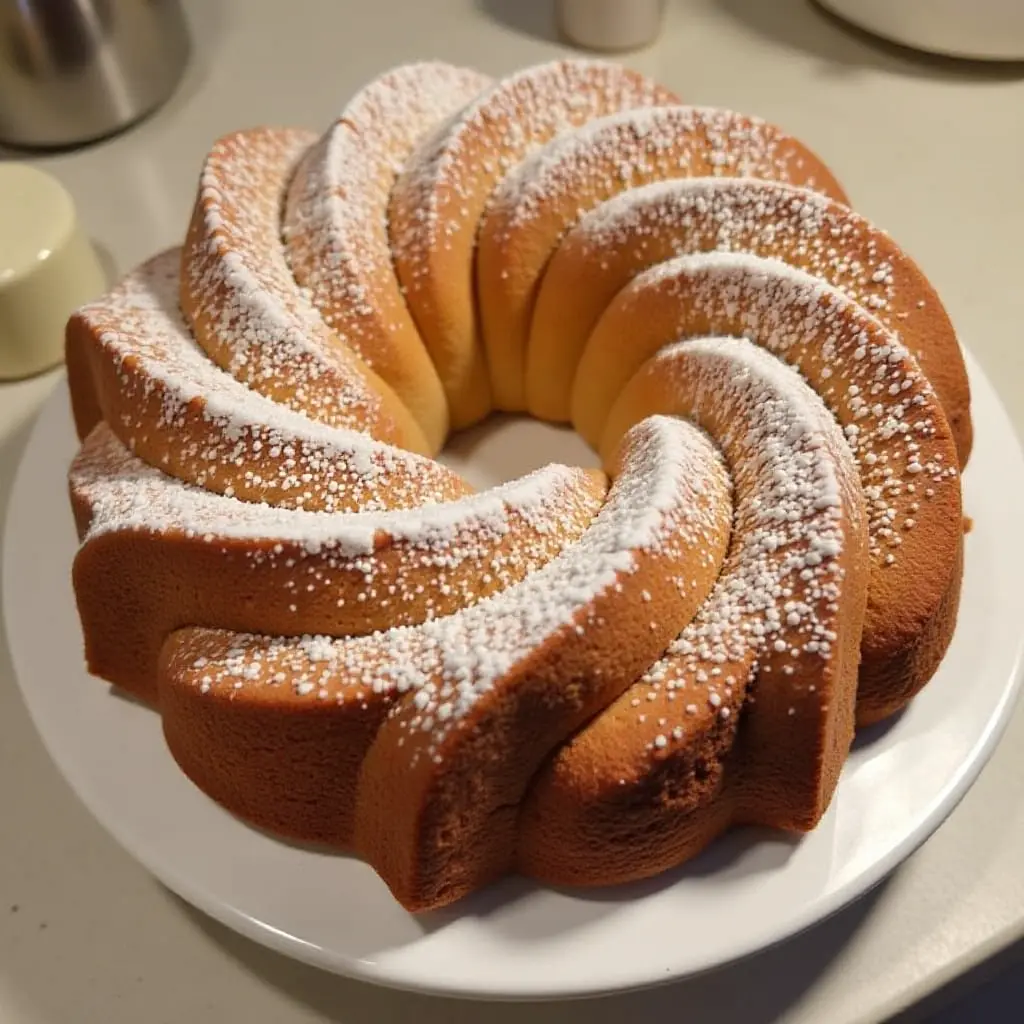
Key Takeaways
- Explore the origins and evolution of the traditional coffee cake
- Discover the key characteristics that make a coffee cake unique
- Understand the role of coffee and its influence on the flavors
- Learn about the essential ingredients and techniques for creating the perfect coffee cake
- Dive into regional variations and cultural influences on coffee cake recipes
Understanding the Essence of Traditional Coffee Cake
Coffee cake is a favorite in many homes, with a history that spans generations. It started in 17th-century Europe’s coffee houses. There, it became a favorite treat to enjoy with coffee.
Historical Background and Evolution
The coffee cake’s story is one of change and improvement. It came to the United States and got new flavors and ingredients. Now, it’s a mix of German, Scandinavian, and American tastes, loved by all.
Key Characteristics of Authentic Coffee Cake
- Tender, moist crumb with a distinct cake-like texture
- Generous streusel or crumb topping, often cinnamon-spiced
- Optional swirls of fruit, nuts, or other sweet fillings
- Served as a snack or accompaniment to coffee or tea
The Role of Coffee in Coffee Cake
The name “coffee cake” doesn’t mean it has coffee in it. It’s named for being enjoyed with coffee. Some recipes might have a hint of coffee, but the real magic is how it pairs with coffee’s rich flavors.
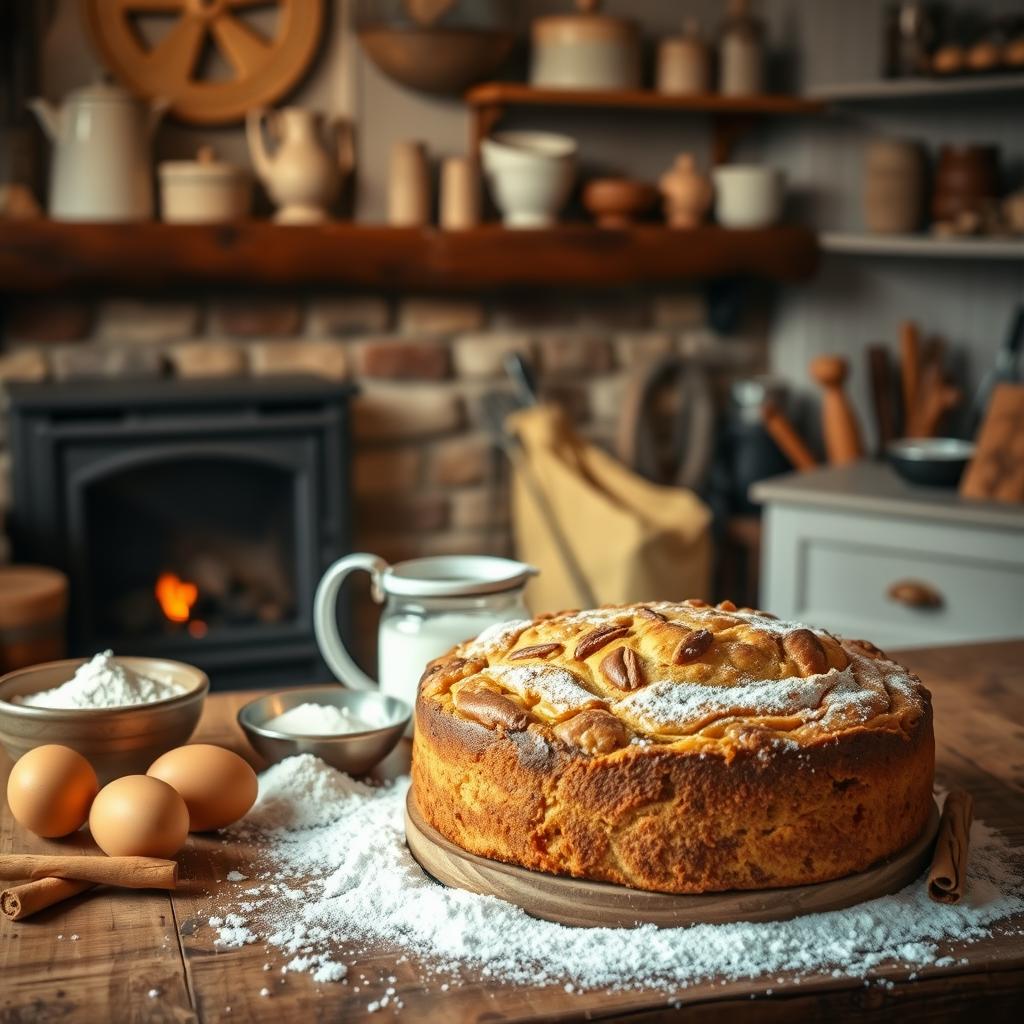
“Coffee cake is a classic, comforting treat that has endured through the ages, bridging cultures and bringing people together over a shared love of good food and conversation.”
What Makes a Coffee Cake a Coffee Cake?
What makes a coffee cake special? It’s the mix of ingredients, how it’s made, and its cultural importance. These elements come together to make this treat so loved.
A coffee cake is a cake meant to be enjoyed with coffee. It’s different from regular cakes because of its dense texture and streusel topping.
| Key Characteristics of Coffee Cake | Typical Ingredients |
|---|---|
|
|
Coffee cakes hold a special place in culture. They were once a way to bring people together, shared over coffee. This tradition lives on, making coffee cake a favorite in many places.
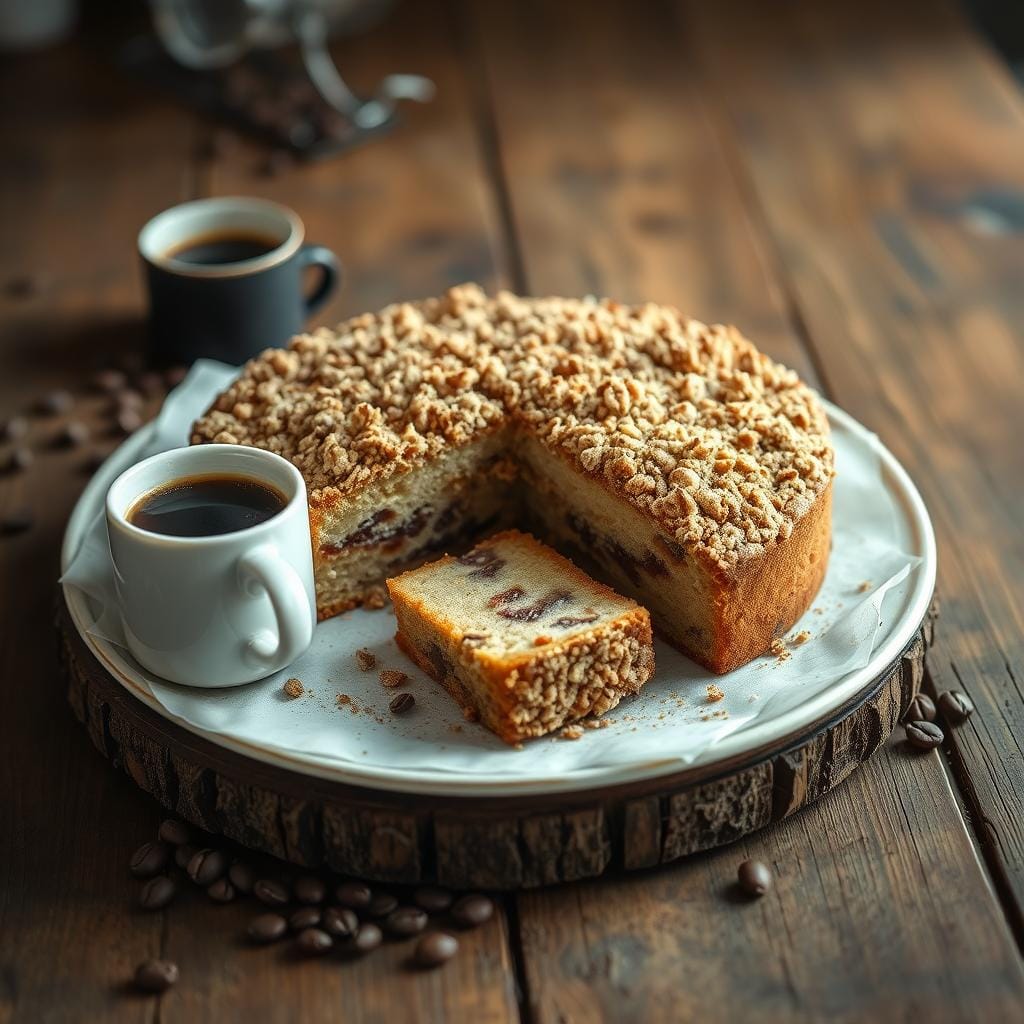
In short, a coffee cake is special because of its ingredients, how it’s made, and its cultural role. This mix makes it a unique and beloved treat for many.
Essential Ingredients That Define Coffee Cake
At the heart of a delicious coffee cake are a few key ingredients. They work together to create the perfect texture and flavor. Whether you’re an experienced baker or new to coffee cakes, knowing these ingredients is key to making a perfect coffee cake.
The Perfect Crumb Topping Recipe
The crumb topping is the crowning glory of a classic coffee cake. It’s a layer of buttery, cinnamon-laced crumbs that contrasts beautifully with the soft cake below. To make the perfect crumb topping, mix all-purpose flour, brown sugar, butter, and warm spices like cinnamon and nutmeg.
Base Cake Components and Ratios
The base of a coffee cake is its moist, fluffy layer. It’s made from all-purpose flour, granulated sugar, eggs, and butter. A good ratio is one part sugar to two parts flour, with plenty of butter and just enough eggs to hold it together.
Optional Add-ins and Variations
While the basic ingredients of a coffee cake are simple, you can add endless variations. Try adding cinnamon swirls, juicy fruit pockets, crunchy nuts, or a creamy cheese filling. The possibilities are endless, and you can experiment to find your favorite coffee cake recipe.
“The best coffee cakes are the ones that transport you to a cozy, nostalgic place with each bite.”
| Ingredient | Purpose | Typical Ratio |
|---|---|---|
| All-purpose Flour | Provides structure and texture | 2 parts |
| Granulated Sugar | Sweetens the cake and contributes to the crumb | 1 part |
| Butter | Adds richness and moisture | Varies, but generous amount |
| Eggs | Binds the batter and contributes to the structure | Just enough to bind |
The Signature Streusel Topping
The heart of a delicious coffee cake is its streusel topping. This topping is what makes coffee cake special. It adds a nice crunch and flavor to every bite.
Making the perfect streusel topping is an art. It needs the right mix of ingredients and technique. The secret to a great coffee cake texture is in how these ingredients are combined.
- Flour: The base of the streusel, giving it structure and a soft crumb.
- Brown sugar: Adds a sweet, caramel flavor to the topping.
- Butter: Makes the streusel crunchy and binds it all together.
- Cinnamon (optional): Adds depth to the flavor of the streusel.
The secret to a great streusel is in how you mix the ingredients. Use your fingertips to mix the flour, sugar, and butter gently. This way, you get a crumbly texture that’s perfect with the cake.
“The streusel is the crown jewel of a coffee cake, elevating it to new heights of deliciousness.”
The coffee cake toppings are the real highlight. They can be thick or light, but they always add a special touch. This makes every bite of coffee cake a joy.
Texture and Structure: Creating the Perfect Crumb
Making the perfect coffee cake is all about finding the right mix of moisture and structure. The secret to a crumb that just melts in your mouth is in the science of ingredients and how you mix them. Knowing how coffee cake ingredients work together can help you bake cakes that are both tender and sturdy.
Achieving the Ideal Moisture Balance
The perfect coffee cake has a crumb that’s neither too dry nor too soggy. To get this just right, you need to measure your wet and dry ingredients carefully. Too much mixing can make the cake tough, while too little can make it crumbly. Finding the right balance of flour, sugar, eggs, and dairy is key to the perfect texture.
Crumb Development Techniques
The way you mix and bake the batter affects the final crumb. Gently folding the ingredients together helps create a light, airy texture. Also, adding the streusel topping gently prevents the cake from becoming too dense. The right oven temperature and baking time are also important for the perfect crumb.
By understanding the science behind coffee cake ingredients and mastering the techniques for moisture and crumb development, you can bake coffee cakes that are truly divine.
Regional Variations and Cultural Influences
The coffee cake has traveled the world, leading to many different versions. From the American Midwest’s streusel-topped classics to Scandinavia’s cardamom-infused treats, the variety is vast. This shows how versatile this beloved treat can be.
In Italy, the panettone-inspired panforte is a favorite, mixing coffee cake with the fruity, spiced notes of Christmas bread. The Greeks have their own twist, the koulourakia, with vanilla and orange zest adding to the familiar coffee cake texture.
Further east, the Middle East and Central Asia offer fragrant, cardamom-infused baklava-esque coffee cakes. These treats combine buttery richness with the warmth of spices and the crunch of nuts.
In the American South, coffee cakes are known for bold flavors like bourbon and pecans. The Pacific Northwest, meanwhile, uses local ingredients like fresh berries and hazelnuts in their coffee cakes.
| Region | Coffee Cake Variation | Key Characteristics |
|---|---|---|
| Midwest United States | Classic Streusel-Topped Coffee Cake | Buttery, cinnamon-spiced crumb topping, moist cake base |
| Scandinavia | Cardamom-Infused Coffee Cake | Fragrant with cardamom, tender crumb, often with a light glaze |
| Italy | Panforte-Inspired Coffee Cake | Rich, fruit-and-spice-studded cake, similar to the traditional Italian panforte |
| Greece | Koulourakia Coffee Cake | Delicate, vanilla-and-orange-scented cake, often shaped into rings or braids |
| Middle East and Central Asia | Cardamom-Spiced Coffee Cake | Aromatic with cardamom, topped with nuts and honey, baklava-like texture |
| American South | Southern-Style Coffee Cake | Featuring bold flavors like bourbon, pecans, or sweet potatoes |
| Pacific Northwest | Pacific Northwest Coffee Cake | Incorporating local ingredients like fresh berries and hazelnuts |
These diverse coffee cake varieties show how adaptable the classic recipe is. They also highlight the rich culinary traditions from around the world. Exploring these regional interpretations will delight your senses and deepen your appreciation for this beloved treat.
Common Flavor Combinations and Popular Add-ins
Coffee cake is a versatile treat that can be elevated with a variety of flavor combinations and delightful add-ins. Whether you’re a fan of classic cinnamon-sugar or craving something more adventurous, there’s a coffee cake flavor to suit every palate. Explore the world of coffee cake varieties and discover new ways to indulge your cravings.
Seasonal Coffee Cake Variations
As the seasons change, so do the flavors that pair perfectly with a moist, crumbly coffee cake. In the spring, bright citrus notes or fresh berries can add a burst of sweetness. During the summer, juicy peaches or cool mint can transport you to a sun-drenched patio. As the air turns crisp in the fall, warm spices like cinnamon, nutmeg, and ginger become the stars of the show. And in the winter, rich chocolate or luscious caramel can provide a cozy, comforting treat.
Complementary Spice Blends
While the classic cinnamon-sugar topping is a beloved favorite, experimenting with complementary spice blends can elevate your coffee cake flavors to new heights. Try incorporating fragrant cardamom, earthy allspice, or zesty orange zest to create a unique and captivating flavor profile. The possibilities are endless when it comes to exploring the world of coffee cake spice combinations.
| Flavor Combination | Recommended Spice Blend |
|---|---|
| Apple Cinnamon | Cinnamon, Nutmeg, Ginger |
| Lemon Blueberry | Lemon Zest, Cardamom, Vanilla |
| Pumpkin Spice | Cinnamon, Nutmeg, Ginger, Allspice |
“The best part about coffee cake is the endless possibilities for flavor combinations. It’s a canvas for creativity and personal preference.”
Serving and Storage Tips for Coffee Cake
Enjoying a slice of coffee cake is a beloved tradition. The right serving and storage can make it even better. Whether for a party or a personal treat, knowing how to present and keep your coffee cake fresh is key.
For coffee cake serving, keep it simple yet elegant. Cut the cake into big slices and place them on a platter or cake stand. This makes it easy for everyone to enjoy. Add some extras like coffee, whipped cream, or ice cream to make it even better.
Storing coffee cake right is crucial to keep it moist and flavorful. After baking, cover the cake with plastic wrap or put it in an airtight container. This stops it from drying out. Store it at room temperature to keep it fresh, avoiding the fridge to prevent texture changes.
Don’t throw away leftover coffee cake. You can reheat it in the microwave or eat it at room temperature. You can also use it in creative ways, like in parfaits or bread pudding.
Learning how to serve and store coffee cake makes it a cherished tradition. Whether sharing with friends or enjoying alone, the perfect coffee cake experience is within reach.
| Serving Suggestions | Storage Tips |
|---|---|
|
|
“The perfect coffee cake is a delicate balance of tradition and innovation, where the aroma of freshly brewed coffee mingles with the comforting flavors of a timeless baked treat.”
Conclusion
The heart of a coffee cake is its special mix of ingredients and how it’s made. It has a streusel topping and a soft, fluffy inside. These parts have been perfected over many years.
This pastry is a big part of baking traditions. It brings back memories of warm mornings and family times.
Enjoying a slice of coffee cake with your coffee is a treat. It’s loved for its ability to bring people together. It pleases our senses with its mix of tastes and textures.
Keep exploring coffee cakes and add your own twist. Try new flavors and textures. Baking is all about the journey, and coffee cakes are a tasty part of it.
FAQ
What makes a coffee cake a coffee cake?
A coffee cake is special because of its ingredients and how it’s made. It has a soft, moist texture and a streusel topping. It also tastes of cinnamon, vanilla, and other spices.
What are the origins of coffee cake?
Coffee cake comes from an old European tradition. People used to serve small cakes with coffee. Over time, it changed with local ingredients and cultures, leading to many different kinds around the world.
What are the essential ingredients in a coffee cake?
A classic coffee cake has flour, sugar, butter, eggs, and baking powder. The streusel topping is made from butter, flour, sugar, and cinnamon. You can also add sour cream, yogurt, or fruit for extra moisture and flavor.
What are the different varieties of coffee cake?
Coffee cakes vary a lot, from cinnamon-swirl to fruit or nut additions. Different places and cultures have their own coffee cake traditions, like the Polish mazurek or German streuselkuchen.
What are the cultural traditions associated with coffee cake?
Coffee cake is a big part of social gatherings and casual get-togethers. It’s often served with coffee or tea. In many cultures, it’s a way to share a comforting treat with loved ones.
What flavors are commonly found in coffee cakes?
Classic flavors include cinnamon, vanilla, and nutmeg. But, coffee cakes can also have fruit like apple or blueberry, or nuts like walnuts or pecans.
What is the ideal texture of a coffee cake?
The best coffee cake is moist and tender. The streusel topping should be crunchy. Getting the right texture is key to a great coffee cake.
What toppings are commonly used on coffee cakes?
The streusel topping is a must-have for a classic coffee cake. But, you can also find other toppings like crumb topping, glazes, or powdered sugar.
How is coffee cake typically served?
Coffee cake is a casual treat, often with coffee or tea. It’s great for breakfast, an afternoon snack, or dessert. It’s also popular at brunches and other gatherings.
